Once a month we invite our Patrons, magazine publishers and enthusiasts to guest-edit our fortnightly email newsletter. The aim is to inspire others with magazine-related content, connect Patrons and build our community so we can learn from each other.
This month our guest editor is freelance writer and editor, Arusa Qureshi. An award-winning journalist with a focus on music writing, diversity and accessibility within arts and culture, Arusa is also author of Flip the Script: How Women Came to Rule Hip Hop. Arusa is on LinkedIn and Twitter – remember to connect and say hello!

Tell us about yourself
Hello! I’m Arusa. I’m a freelance writer and editor based in Edinburgh, mostly working within arts and culture. I’m the current Editor of Fest and the former Editor of The List and I tend to write a lot about music, most recently Flip the Script – a book about women in UK hip hop, published by 404 Ink.
I write regularly for places like the NME, the Quietus, the Forty-Five and more and I’m also the co-curator of the award-winning Amplifi series at Edinburgh’s Queens Hall.
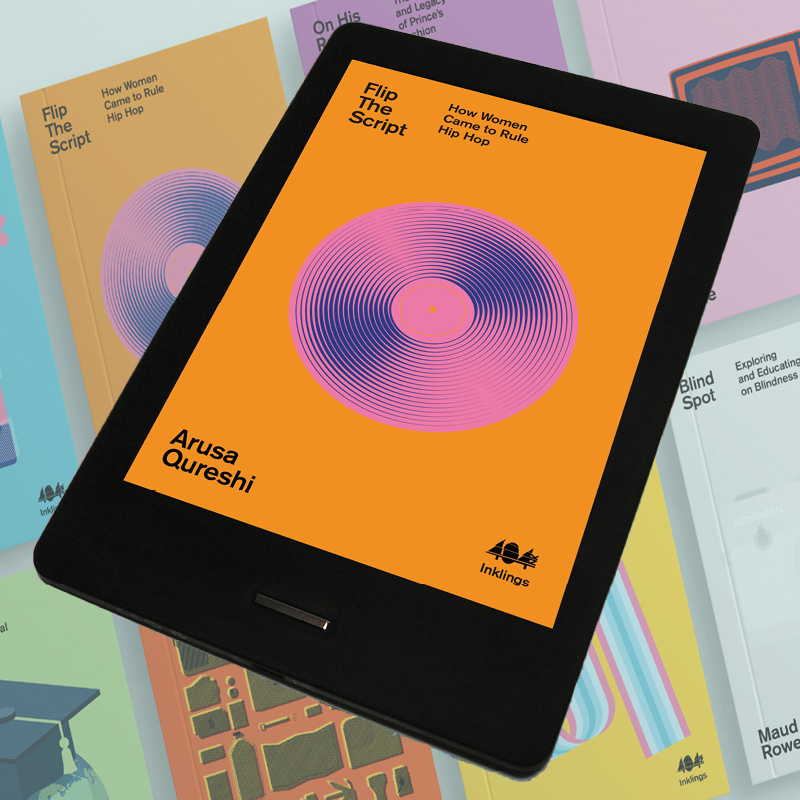
What’s on your mind?
I’ll be honest, I’ve been anxious about a lot of things recently – the collapse of the arts in Scotland, redundancies in journalism and the probability of ChatGPT one day stealing my job.
But today, Ed Sheeran has been on my mind. Why you ask? It turns out our pal Ed doesn’t see the point in music critics. “Why do you need to read a review? Listen to it. It’s freely available!” he told Rolling Stone. “Make up your own mind. I would never read an album review and go, ‘I’m not gonna listen to that now.’”
I’d hope that people aren’t generally in agreement with him and that music criticism is seen as more than just something that tells you what to listen to. But for now, Sheeran has made my list.
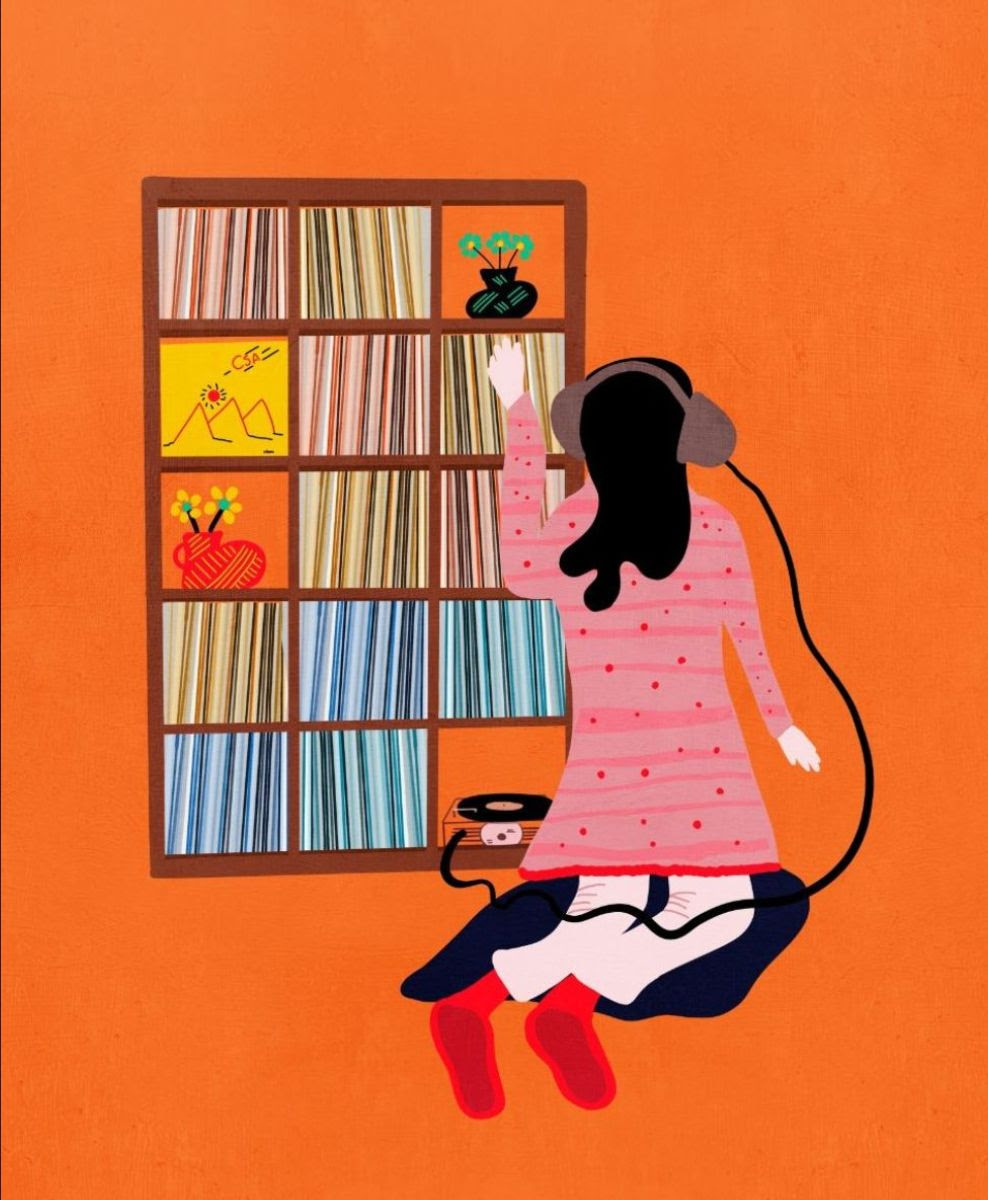
Patrons receive their first 5 Ikon Images illustration uses for £50 each
What’s the best article you’ve
read this month?
I’ve been thinking a lot about something that Courtney Love wrote for the Guardian this month about the lack of women in the Rock & Roll Hall of Fame and how the entire thing needs to be overhauled. In a nutshell, it goes back to an article, titled ‘Rock & Roll Hall Of Fame celebrates women who rock’, that was shared by the journalist Jessica Hopper on Twitter.
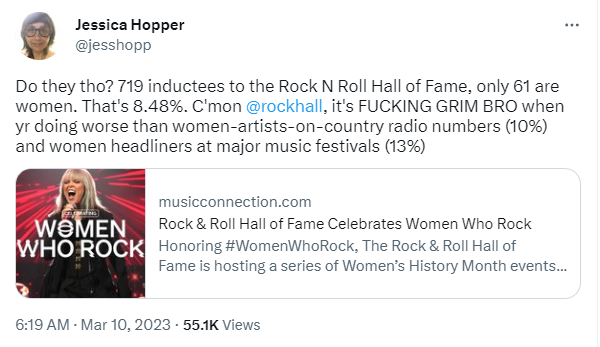
Courtney then retweeted this and shared her thoughts, followed by this article that was published by the Guardian later, where she had the chance to go more in depth. It has such valid and infuriating points that are familiar in many aspects of the creative industries, including that “just 8.48% of the inductees are women” and “the Rock Hall voters, among them musicians and industry elites, are 90% male”.
She says at the end of the article: “If the Rock Hall is not willing to look at the ways it is replicating the violence of structural racism and sexism that artists face in the music industry, if it cannot properly honour what visionary women artists have created, innovated, revolutionised and contributed to popular music – well, then let it go to hell in a handbag.” YES COURTNEY.
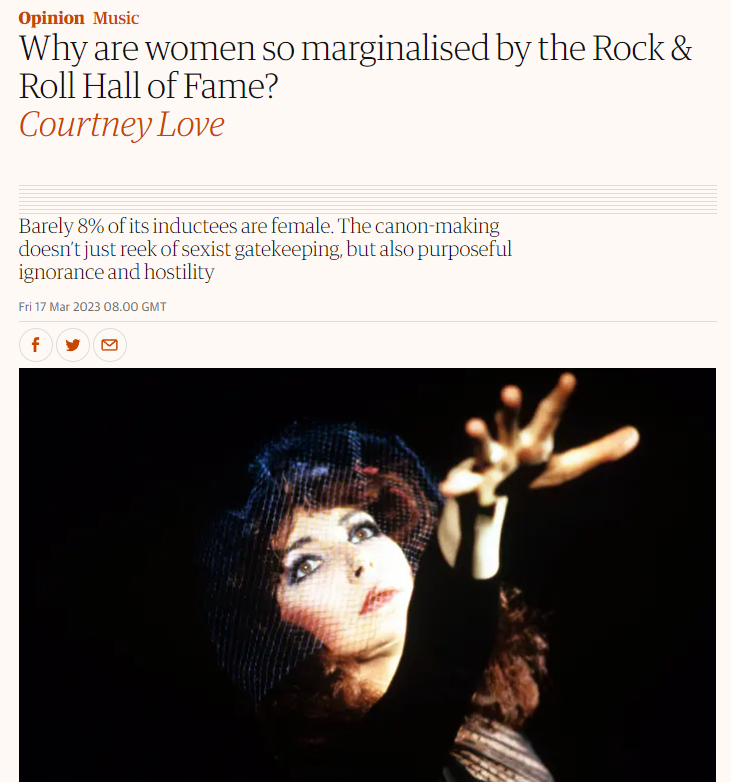
Show us an incredible magazine cover
I have far too many favourites but one cover that instantly comes to mind is New York Magazine’s 2015 cover, which featured 35 women who had accused comedian Bill Cosby of sexual assault, plus an empty chair signifying all the women that don’t feel they can come forward about sexual abuse in all walks of life. It’s a really simple, powerful and memorable image.
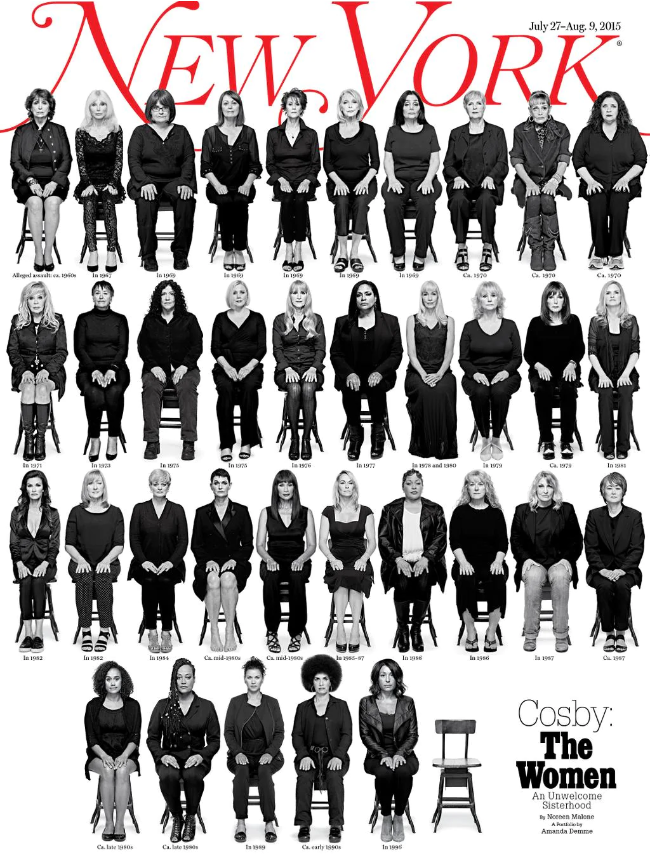
| More recent covers I’ve really liked include The Washington Post Magazine’s ‘What doomsday looks like today’ cover, Brick Magazine’s latest edition, which has a number of different covers with people like Grandmaster Flash, Ray BLK and Berwyn, and The Skinny’s beautiful April cover. |
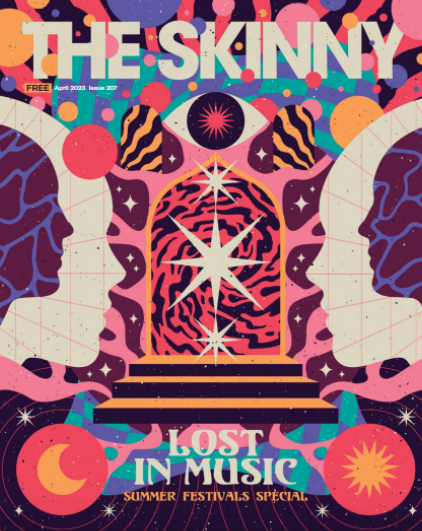
What’s your top tip for publishers?
I don’t know if this is necessarily a top tip, but more something I believe we should all be thinking about and scrutinising, especially when talking about diversity and inclusion in any industry.
There are some excellent initiatives out there that are all about increasing representation, encouraging wider participation and giving greater access to roles that might have previously been reserved for a select few. But where things often tend to go wrong is further down the line, because retention is just not given enough focus.
If you’re recruiting diverse candidates with the intention of diversifying your team, that’s all well and good but don’t forget to consider the support needed to allow that person to grow and thrive.
Is the environment you foster conducive to open discussion and dialogue? Would people feel okay raising issues that might be uncomfortable? Are you proactive in addressing bias, discrimination and general bad behaviour? All of this, and more, is needed otherwise we really do risk driving away new/up-and-coming talent.
Housty, we have a problem
| What problem would you like our magazine consultant, Peter Houston, to solve in the next newsletter? My question is: Could AI like ChatGPT really replace journalists and critics in the future? |
Need more of this in your life?
| Subscribe to our newsletters here and follow us on social on the links below. |
